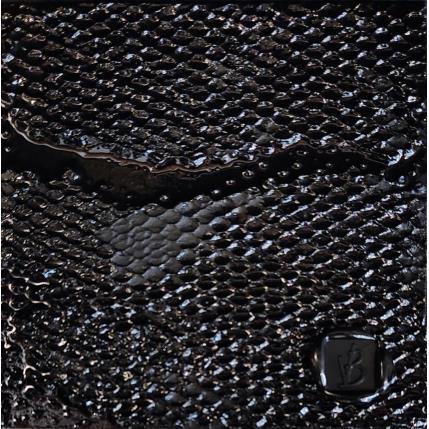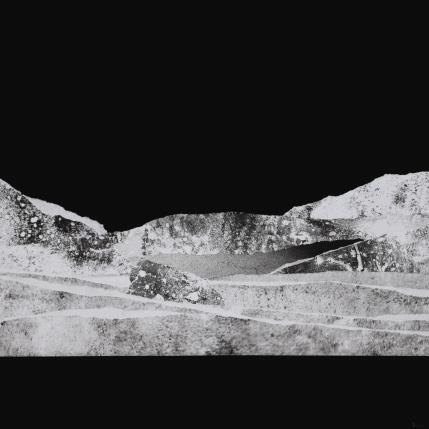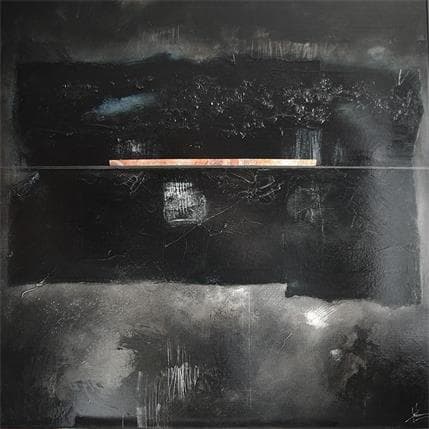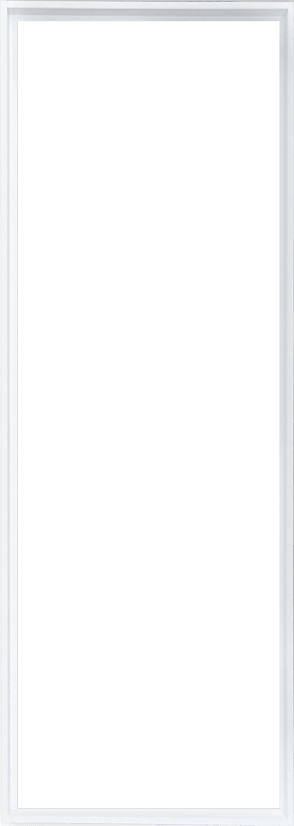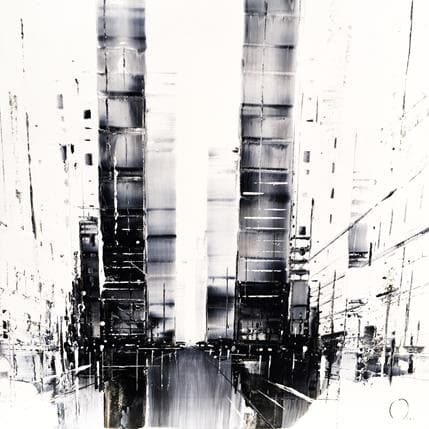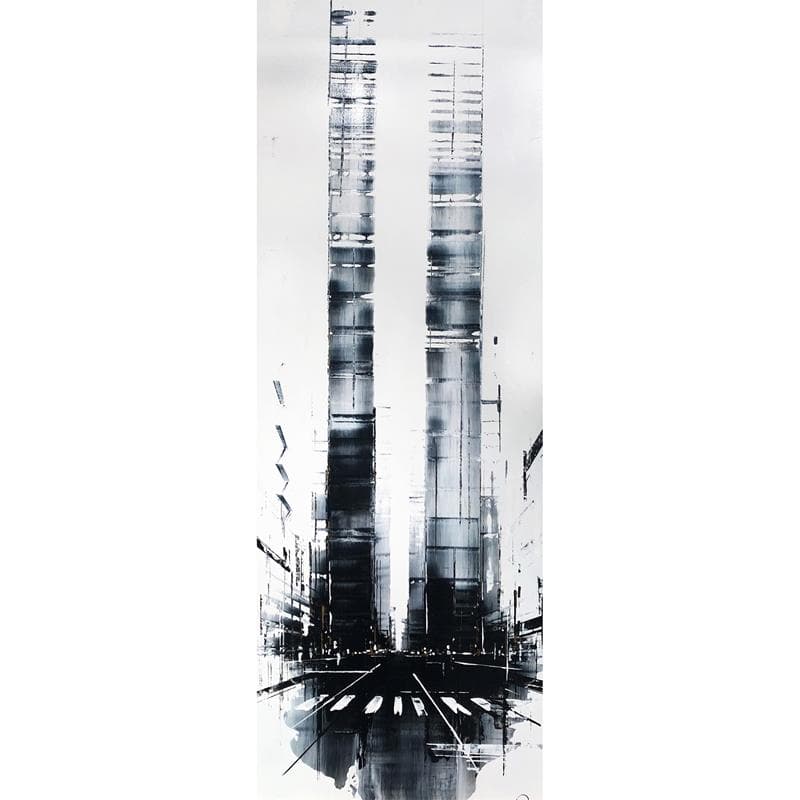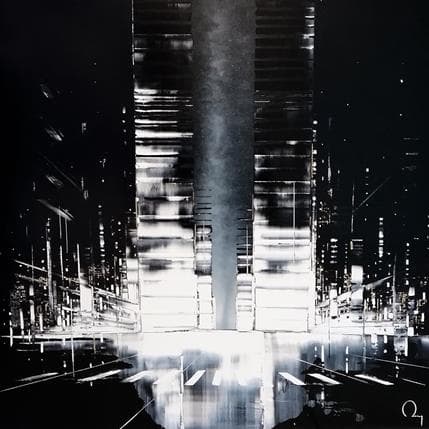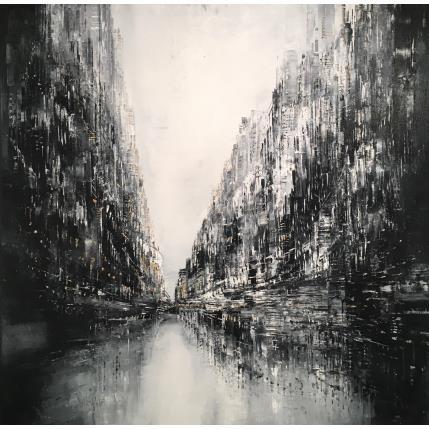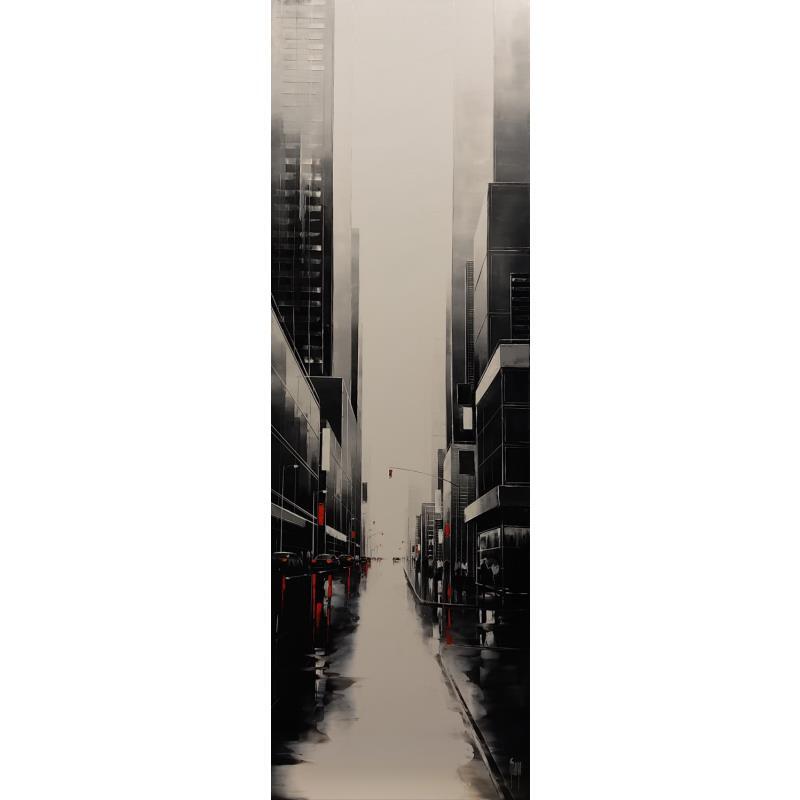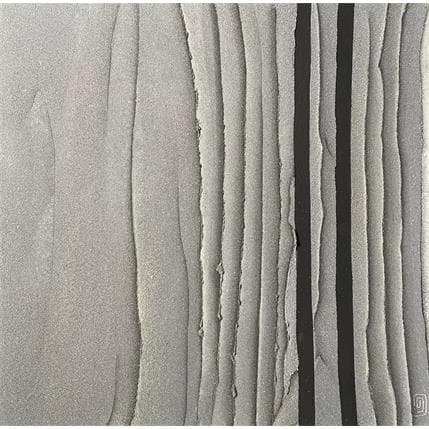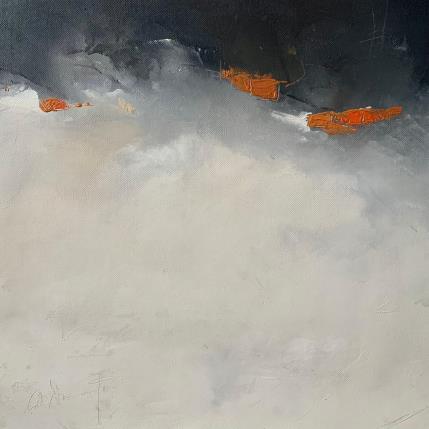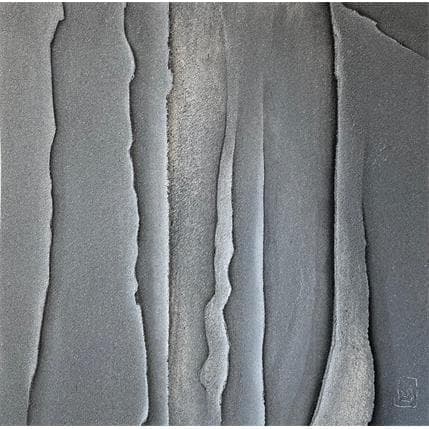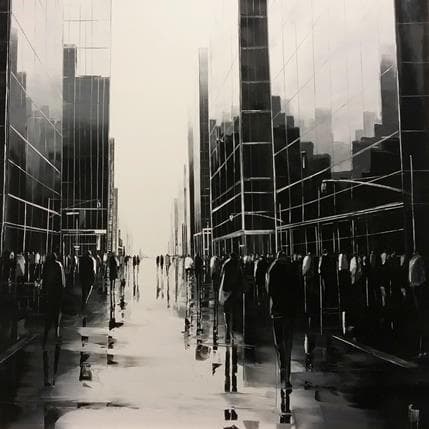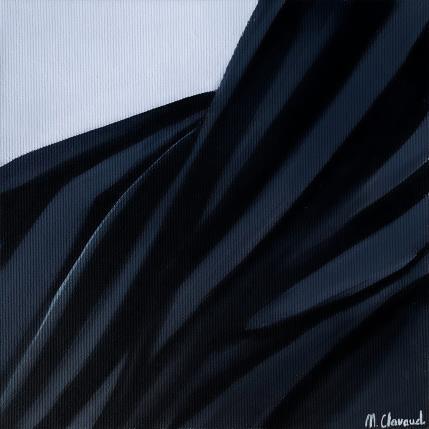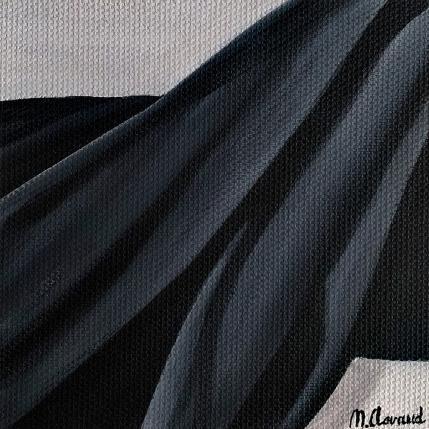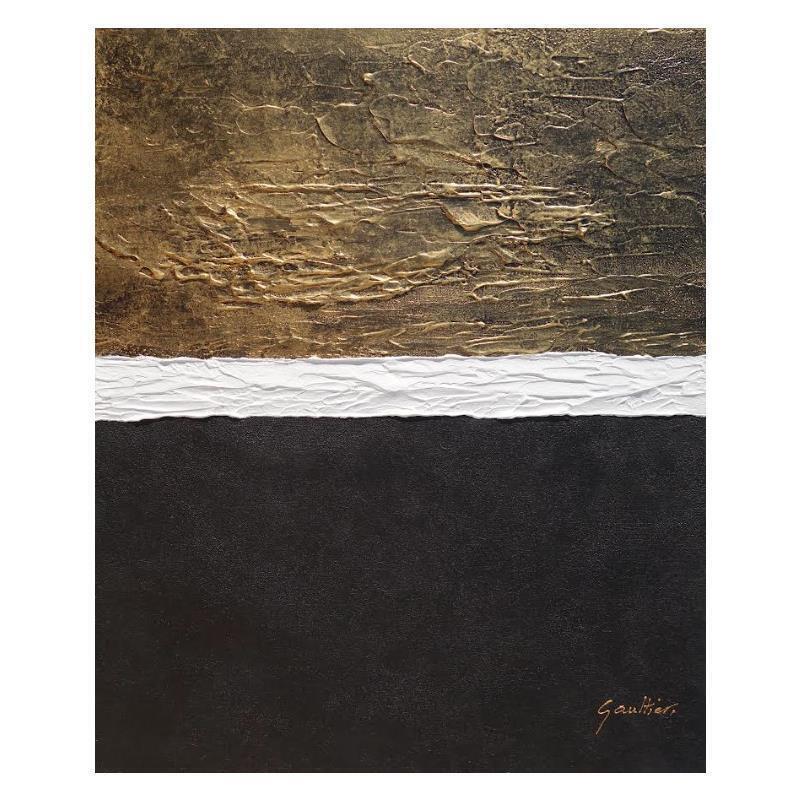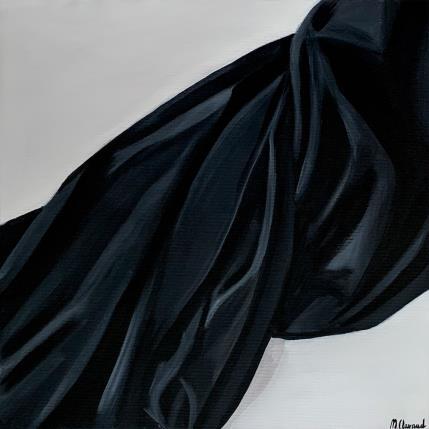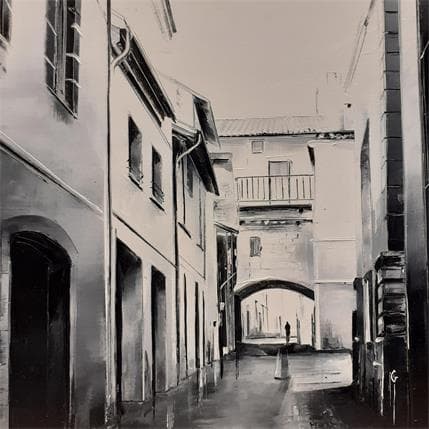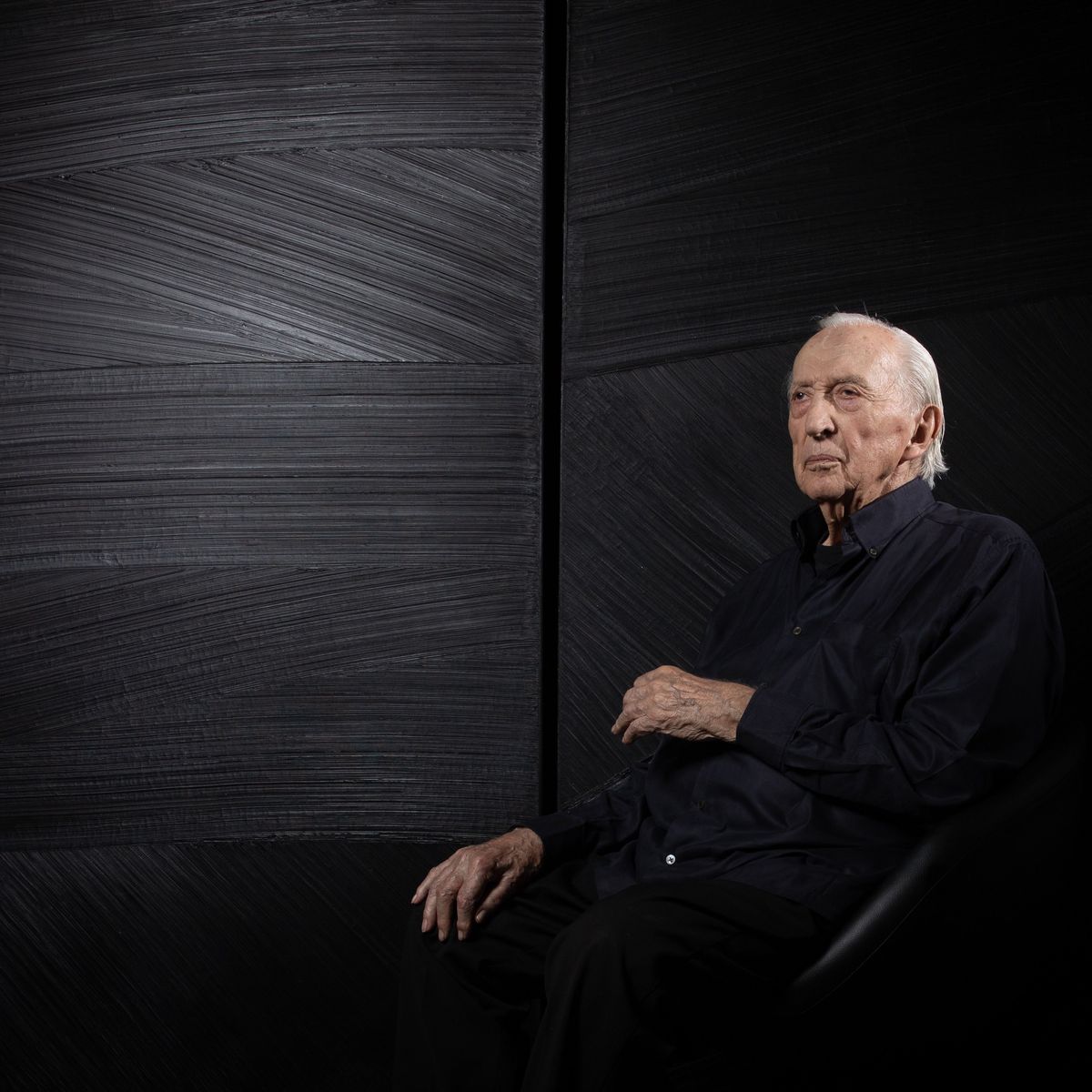Read more
Discover the Pierre Soulages Inspiration Collection at Carré d'artistes
Soulages has had a profound impact on the abstract artists of our time from many countries. He is an essential reference and a source of inspiration for abstract art all over the world. He has made these artists want to paint like him, if painting like Soulages is possible.
Thus, in our online gallery, we present the collection "Tribute to Pierre Soulages", which highlights the artists Moritz Rimbaud (Spain), Virgis (Estonia), Gérard Clisson, Catherine Simoneau-Pestel, Christian Hévin, Ramses Ramses (France), Hilde Wilms (Germany).
WHAT PAINTING OWES TO PIERRE SOULAGES
Pierre Soulages in a few words
Pierre Soulages was born in Rodez on December 24, 1919 and left the world of art orphaned on October 26, 2022 at the honorable age of 102. Raised by his mother, he already turned to pictorial art at an early age.
At the age of 18, he was admitted to the Ecole des Beaux-Arts in Paris, but refused the curriculum which he considered mediocre. This trip was not without interest because he took the time to visit the exhibitions of Picasso and Cézanne which he was captivated.
He returned to his hometown until the Second World War disrupted his life. At the end of the war, he returned to the capital and found a studio in the Paris suburbs.
The 1950s were the beginning of his success. He exhibited at the Kootz Gallery, New York, and later at the Galerie de France, Paris. His works have been collected at the Phillips Gallery in Washington, D.C., the Guggenheim Museum and the Museum of Modern Art in New York, the Tate Gallery in London, the National Museum of Modern Art in Paris and the Museum of Modern Art in Rio de Janeiro. - de Janeiro and more... Today, Pierre Soulages has over 230 paintings in more than 110 museums on all continents.
For his 100th birthday, the entire artistic community gathered to pay a vibrant tribute to this master of abstract art.
The famous works of Pierre Soulages
In 1949, he created Brou de noix sur papier, a painting now exhibited in Rodez. At the beginning of his plastic studies, certain forms of Pierre Soulages' work are similar to calligraphy and gesticulation.
But what interests the artist above all is not the search for form as form, but the traces of gestures. The plastic means are limited at first to walnut shells and tar. Here, black and dark colors already play the role of revealing the whiteness of the support paper, either by contrast or by transparency.
Two years later, in 1951, Eau-Forte XX was born. Etch XX of 1972 arrived after an experimental research of the technology.
At first, the metal plate (in this case copper) is varnished. The engraver traces the paint with a metal point to cut into the paint. The plate is then immersed in a solution of acid treatment, hence the name etching. Pierre Soulages, who alternates between intaglio and etching, relies on chance in this first stage of preparation of the support. The exposed parts are attacked by the acid and the varnished parts remain intact.
In the second step of the process, during the press run, the hollowed out parts are colored. In search of deep blacks, Soulages even accidentally perforates the copper with acid. The ultimate mistake of traditional sculptors, this hole is exploited by Soulages. What should be black becomes white.
When this coincidence is printed, it reveals the immaculate whiteness of the parchment paper, of the weft and grain of the wood of Arche. In his first etching, when Soulages attempts to reproduce his painting, he indulges in the joys of technique, working with acid to achieve a freer form. The copper plates, the printing tools and the paper are more than just supports, they are an integral part of this work. Soulages considers the etching as an independent work.
The paintings of Pierre Soulages: black, black but mostly black
Black, or beyond black as he called it, is a favorite subject for the painter, especially in the latter part of his career. Why black? In reality, more than the color black itself, which are coated his paintings, it is the reflection of light on it that interests him. More than working with black, Pierre Soulages works with light. He explains, for example, his work on the striations that adorn his works. Each stripe is different, is composed of a ridge and a groove that is unlike any other on this or any other painting. Each one takes and reflects the light in a unique way.
This is why Pierre Soulages' paintings must be seen in person. Photography will not render these light effects so sensitively.
What legacy has the painter passed on?
Pierre Soulages is an artist recognized throughout the world as a painter and engraver.
In his art, Pierre Soulages pushed to the extreme the research, the experimentation of the matter and the color. His quest led to the omnipresence of the color black in his work. His tenacity, his relentlessness, his extreme work on the color black has fascinated many of his contemporaries. Among them, artists of the younger generation have seized upon the works of Pierre Soulages.
The exclusivity of black in the work of Pierre Soulages still questions the general public and artists. The art of Pierre Soulages is filled with mysticism. To describe or comment on the works of Pierre Soulages, one quotes the terms of Beyond Black or Absolute Black.
These names perfectly translate the opacity, the density of black in the paintings of the greatest living French painter.
How are contemporary artists inspired by Soulages?
The color black is of course omnipresent in the collection "Homage to Pierre Soulages". It floods the canvases.
However, even when it covers, alone, entirely the surfaces, as with Moritz Rimbaud, the black color is never plain nor dull. The black color even seems alive and luminous.
Thanks to the effects of light, to the chosen textures, to the tools which served to magnify or to tame it, the black color dear to Soulages Pierre is more luminous than any other color. Black is not in the works and in the paintings of these contemporary artists, synonymous with sadness, darkness or mourning. On the contrary, it energizes, it explodes with life, joy and light.
The traces of execution of the work of artists, as on the paintings of the master Soulages Pierre, are visible: erasures, scrapings, drips, brushings, layering at Christian Hévin, Hilde Wilms, Catherine Simoneau-Pestel or Moritz Rimbaud. For Gérard Clisson and Ramses Ramses, it is the use of paper on the one hand, on the other hand of other contrasting colors that refer to the Pierre Soulages works. The paper gives volume to the black color. The colors used in addition to black absorb, reject or agree with the black.
While Pierre Soulages favored large and even gigantic formats, our artists preferred smaller spaces to express themselves, with the exception of a few paintings. Finally, while each painting of Soulages Pierre was titled Painting, followed by a number, some of our contemporary painters seem to adopt the same method. The works of Moritz Rimbaud are indeed entitled: 7.1, 7.8, 7.9,... and those of Ramses Ramses are entitled Obscur 11, Obscur 6,...

